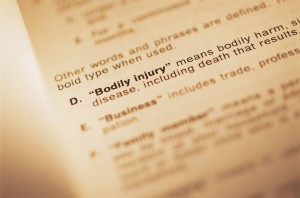Good Faith/Bad Faith: Insurance Companies' Settlement Responsibilities
Under Florida law, the term “negligence” refers to an array of legal theories under which private parties may sue for injuries and monetary damages resulting from automobile, motorcycle, ATV, and boating accidents, slip and fall accidents, and wrongful death resulting from an accident or medical malpractice, among others.
 Typically, the insurance company for the party who caused the accident and resulting injuries handles the claim. If the insurance company does not offer to settle for a reasonable amount, the attorney for the injured party may initiate a lawsuit. However, insurance companies are required by Florida law to attempt to settle injury claims in good faith.
Typically, the insurance company for the party who caused the accident and resulting injuries handles the claim. If the insurance company does not offer to settle for a reasonable amount, the attorney for the injured party may initiate a lawsuit. However, insurance companies are required by Florida law to attempt to settle injury claims in good faith.
In fact, the attorney for the injured party may initiate a separate lawsuit against the insurance company for its bad faith refusal to settle a case. Recent attempts by the Florida legislature to set limits and impose higher restrictions on bad faith claims against insurance companies were thwarted earlier this year when HB 1187 stalled in the Florida House.
While the overwhelming majority of all civil lawsuits filed – around 98% – settle out of court, in some cases, it makes sense to go to trial and let the judge or jury decide. For example, in a case involving a client who suffered serious, permanent injuries in an auto accident, if the insurance company refuses to make a reasonable settlement offer, the case should proceed to trial so that we may try to maximize the client’s chances of a fair recovery instead of settling for a trivial amount.
The attorneys at PERENICH The Law Firm have over 70 years of combined experience in settling auto and other accident cases, together with the resources to take a case through trial and a jury verdict in the appropriate circumstances. We have tried dozens of cases throughout Florida, including Pinellas, Hillsborough, and Pasco Counties, and you can count on us to fight to resolve your case for what it’s worth.


